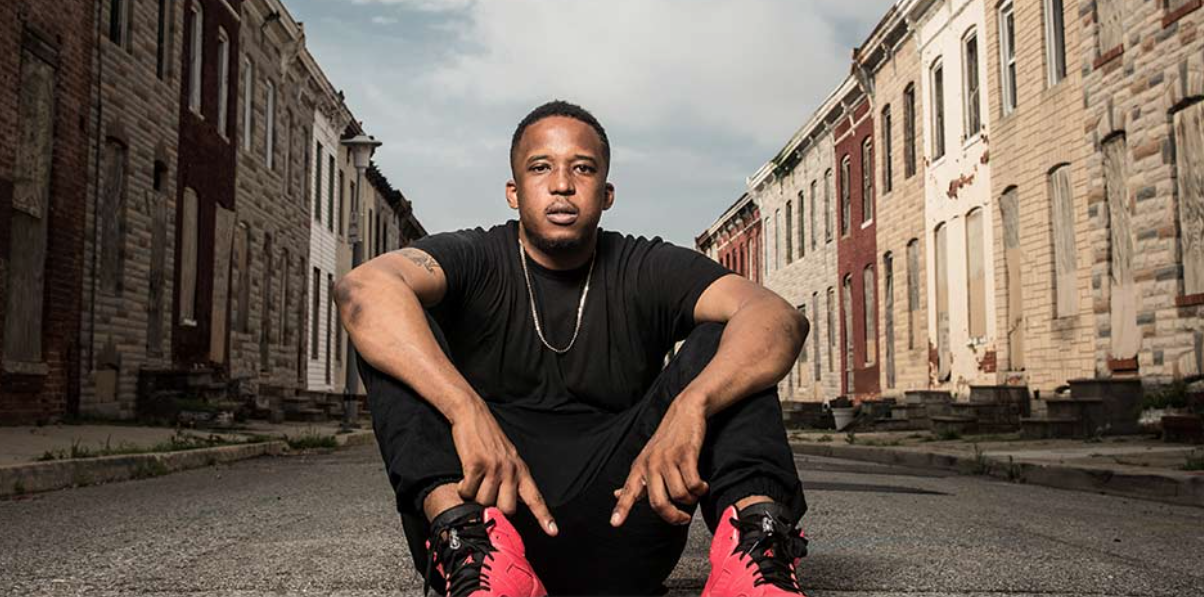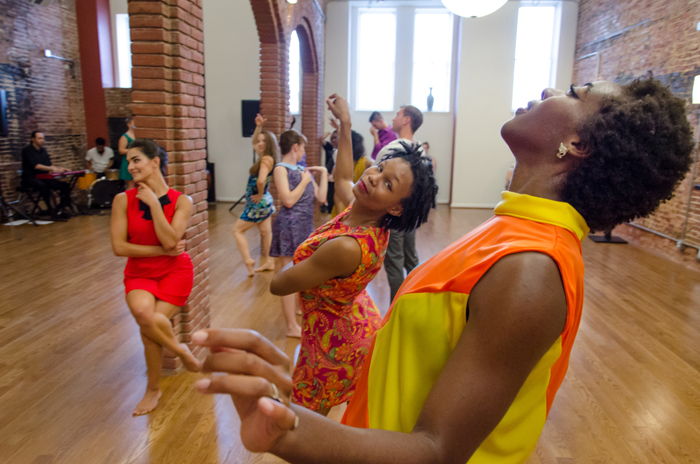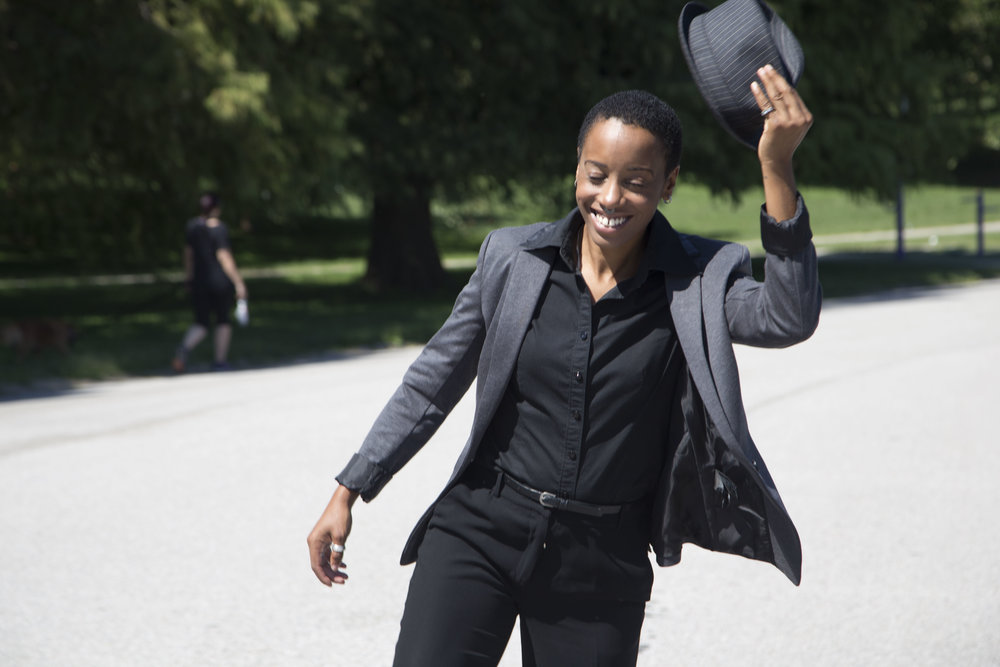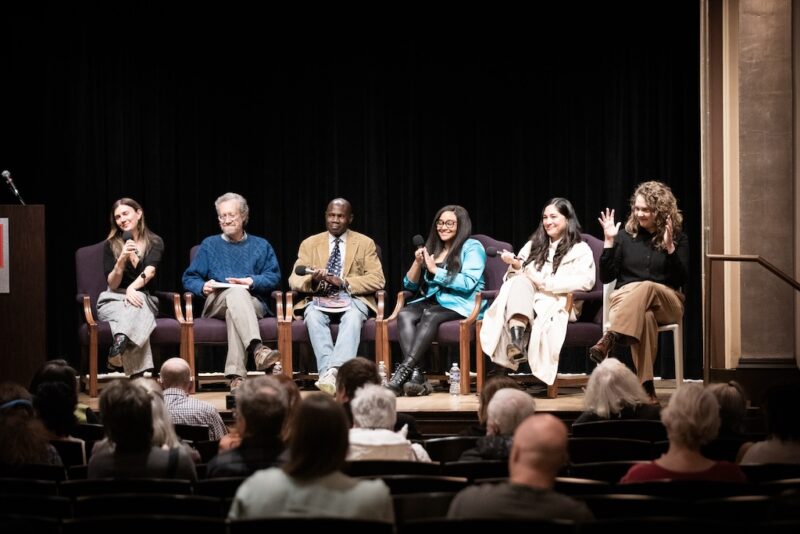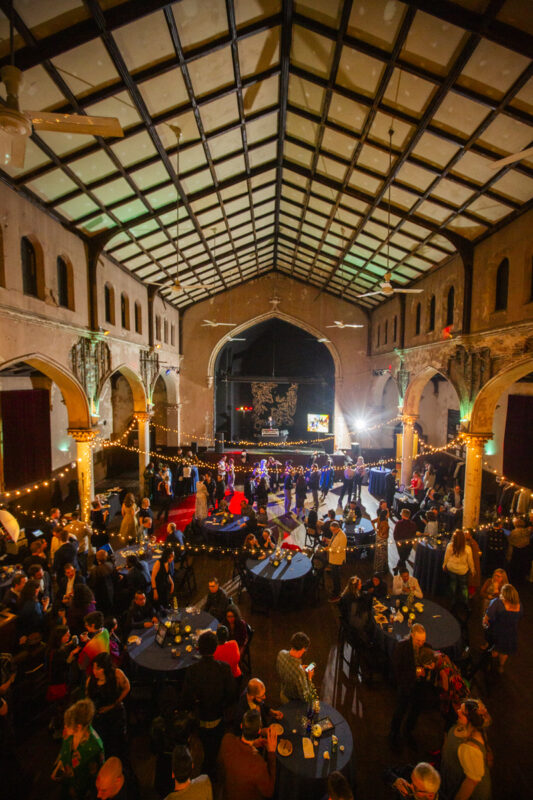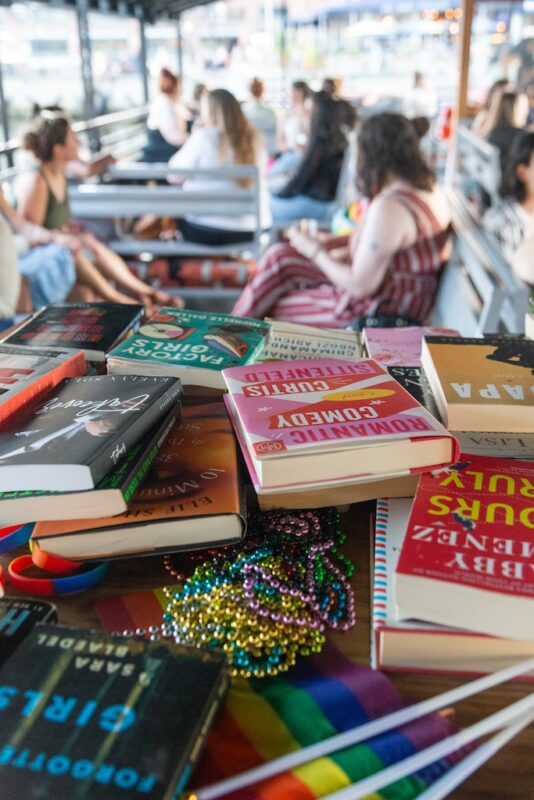A Q&A with artist and activist Michelle Antoinette Nelson
By Bret McCabe
On December 4, 2012, the Baltimore-based artist, photographer, poet, and activist Michelle Antoinette Nelson tweeted a photo of dinner: vegetarian chops, roasted red pepper quinoa, and veggies. She hashtagged it #BrownAndHealthy, a joyful affirmation that she’s mindful of taking care of herself. That was the first time she tagged something BrownAndHealthy, and over the course of 2013 it became a motivational hashtag—and then so much more.
That hashtag has grown into the Brown and Healthy movement and nonprofit she started to promote mental and physical wellness among people of color. Last week, the nonprofit’s Brown and Healthy K.I.D.S. program, an initiative to health and wellness programming to public schools and community yough programs in West Baltimore, was awarded one of three $10,000 Elevation Awards. This week, she’s put together the first Brown and Healthy benefit concert, taking place at the Windup Space Sept. 22, and featuring performances by Eze Jackson, Joi Carter, Jahiti of Brown FISH, Kariz Marcel/the Black Water Project, and hosted by Shelly Says So.
BmoreArt caught up with Nelson by phone to talk #BrownAndHealthy, changing the narratives about people of color in Baltimore, and why it’s important for artists to take care of themselves.
How and when did you start Brown and Healthy and what was your thinking behind the nonprofit itself?
I initially started hashtagging #BrownAndHealthy three years ago, in 2013. I was just getting back into shape with my sister and decided, Hey, I’m brown and I’m healthy, so why not #BrownAndHealthy—and it just kind of caught on. And then the social climate changed drastically.
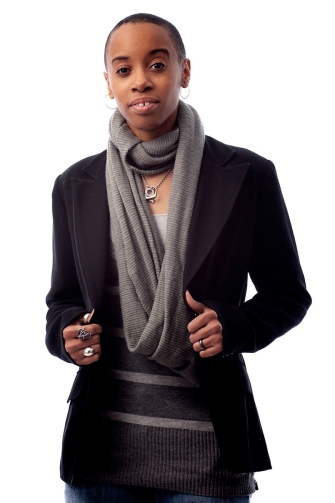
In what way?
With police brutality and the narrative around black people and watching how people spun the killing of young people, kids—starting with Trayvon Martin, how he was immediately demonsized and made into a criminal as opposed to the victim. Waking up every morning and hearing something else, it kind of felt like we were at war.
That became very difficult for me because I’ve always been an activist at heart. So what can I do? What do I have at my disposal to help? I had a friend of mine design the Brown and Healthy logo and when I saw it, I thought this is bigger than me. This is the thing that we can do.
It really hit me when I was asked to speak at a graduate convocation last year for incoming graduate students and they asked me to speak because I’m a self-made artist and the ties that I have to the community and just knowing what to do, where to go to access the scene in the city. They asked me to speak about that and then threw in there that they wanted me to talk about #BlackLivesMatter. And I was like, Hmm, it’s an interesting assumption that I even want to talk about that—but let me go with it.
One thing I noticed when I searching my brain on how to communicate exactly how I feel about that I noticed a Baltimore magazine, and I saw that there were very few people in it that looked like me. I started thinking about narratives, and existing, and what mattering is—taking away the mantra and the idea of putting something in front of “matters.” And I started to think about how when I was in elementary school, and I remember being taught that you weren’t supposed to worry about if you mattered to other people. You know, in grade school.
I started thinking about how opinion-based that is—it’s subjective. You don’t have to care if you matter to anyone else but you have a responsibility to matter to yourself. And being brown and healthy is very declarative. It also denotes that we exist—a certain demographic of brown people in this world actually exist. If you hashtag #health, #wellness, #fitness, you mostly see people that don’t look like me. And if you do some people that look like me, they’re bodybuilders and it looks unattainable.
So I started thinking about the spectrum of how brown people exist—and I use the word “brown” intentionally, because in a lot of ways black is a very blighted term. I want to celebrate who we are and what we do and say, ‘Hey, I’m melanated, I’m of African descent, I’m a brown person. Also, when I talk about the spectrum, you have The Wire, and then you have Baltimore magazine. So either we exists as crackheads, junkies, drug dealers in the eyes of the world, or we’re nonexistent. We can be erased. We can be crossed out of something called “Baltimore” magazine where, in this city, the majority of people are brown people. So I’m looking at that and thinking, how can we declare that we’re brown, we’re healthy, and we’re going to continue to be here, and we’re going to help ourselves—to rally people to ideas of health.
That’s what we talk about when it comes to being brown and healthy. It’s a global health and wellness initiative for people of color to have mental, physical, and emotional health and well-being.
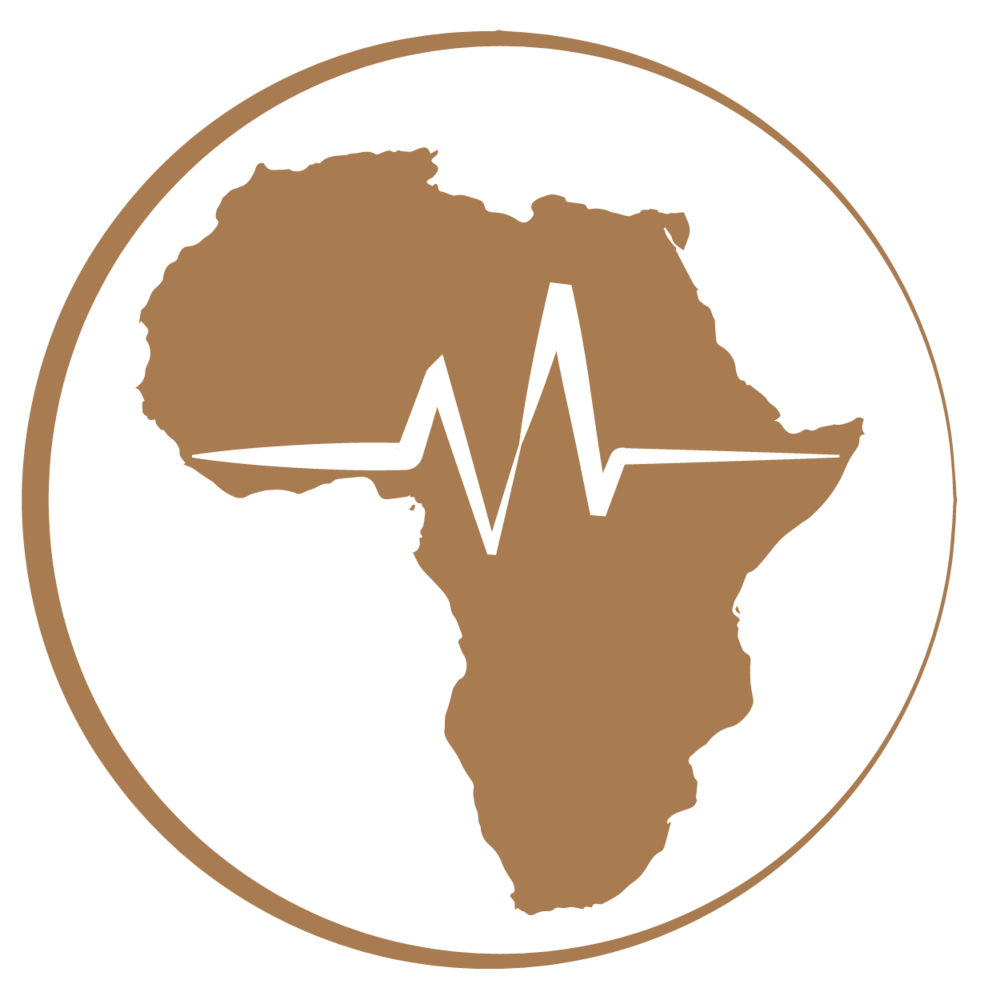
You mentioned looking around the general health and wellness situation and not seeing many people who look like you. Is raising awareness that there are people who look like you doing this kind of work part of the mission as well?
I think we are addressing it for everyone, quite honestly. It is very much so specific to brown people and I think it’s OK to say that, it’s OK for us to work for ourselves and do something for ourselves. But I have white allies, accomplices, however you want to put it, people who are just as excited about the programming and just as willing to help and want to be a part of spreading that message.
Ultimately, that message is helpful for everyone involved. We know a lot of us exist in our own little worlds, just doing what we can do for ourselves and our families and our friends, but what happens when we reach out? On Facebook I put out a call for black personal trainers. I got 74 comments and in those comments each person tagged two or three people. And I was floored by, just that quick, the building of a network that I knew had to exist somewhere. And it’s right in our faces everyday. You know what I’m saying?
We are the missing demographic [in discussions of health and wellness]. We are not acknowledged. It’s like, It’s like, OK, they’re just doing what they’re doing and we’re not going to talk about them, we are just going to harp on the underserved. So how can we work together as a people if we don’t even see ourselves in the world?
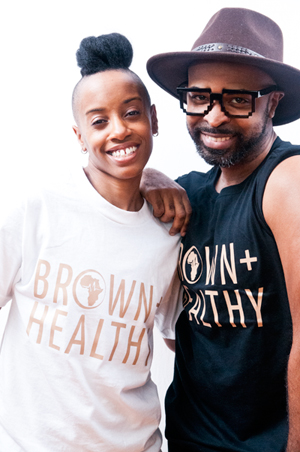
Tell me a bit about Brown and Healthy K.I.D.S. and the Elevation Award that y’all received last week. Is that a part of what you want to do with the Brown and Healthy nonprofit?
The nonprofit is a way for us to get proper funding, be able to employ people eventually, and be able to implement the programming that we want. BrownAndHealthyKids is a major component of that. We also have the BrownAndHealthy speaker series, which ultimately we want to grow into something bigger, like a conference. The speaker series happens every second and fourth Tuesday of the month. We also have the arts and exhibition wing.
The mission is, Change the narrative, change the world. And this only way to change the narrative—and this is my performance artist speaking, somebody who’s been around the world, seen and met many people, and understands how the world absorbs things—you have to approach it from every angle. So BrownAndHealthyKids, not only is it a health and wellness program where we have people talk [to kids] about healthy, hygiene, and aspects of wellness, but also we’re also going to be able to have kids participate in games and sports. We received an equipment grant where we can get used equipment, which is really awesome. So we can go into rec centers or community centers that don’t have the equipment and bring that with us.
We’re also hoping to get cell phones and iPads and let the kids document [their activities], and have them make memes using the acronym “KIDS”—kindness, intelligence, determination, strength—to reflect them and what they experience. So this small cohort of people can start to change the narrative. And they can go home and talk with the parents [about what they learned], and start to change the narratives in their house.
You mentioned how you’re a performance artist who has done a lot of touring, but I also know you ran track in high school and college, so your fitness as an athlete is something you’ve worked on. And one of the things that’s cool about an artist-athlete talking about these things is that you can talk about things artists sometimes overlook. Artists ask a lot of their bodies as musicians, as performers, as artists who physically handle many things—could you speak a bit about the importance of taking care of yourself as an artist?
That’s really important. I teach artist development and poetry classes to adults. And one of the things I talk to them about always is that you need to go out and exercise. Number one, you need your lung capacity, you need your strength endurance. You need to have a solid core. You need to feel physically whole in order to shoulder the mental stress and strain and the physical stress and strain that comes with being an artist. Artists who are big names, they basically get paid to stay in shape and tour—because their money comes from their touring. So they have to be able to sustain that kind of lifestyle. And it isn’t easy.
I was watching I’ll Sleep When I’m Dead, the documentary about [electro DJ] Steve Aoki. They filmed it in 2014, I think, and that year alone he did like 300 shows. They show his workout regimen a lot in the documentary, just a reminder that you have to take care of yourself.
These last few days I’m falling apart just because I haven’t been taking care of myself to be honest. But I know that and I know that I have to get back on the horse so to speak, because it’s very important. As a former track athlete I know how bright and open your mind is when you’re feeling good, when your body has that level of fatigue from the workout but your mind is sharp. That all goes together as an artist.
*******
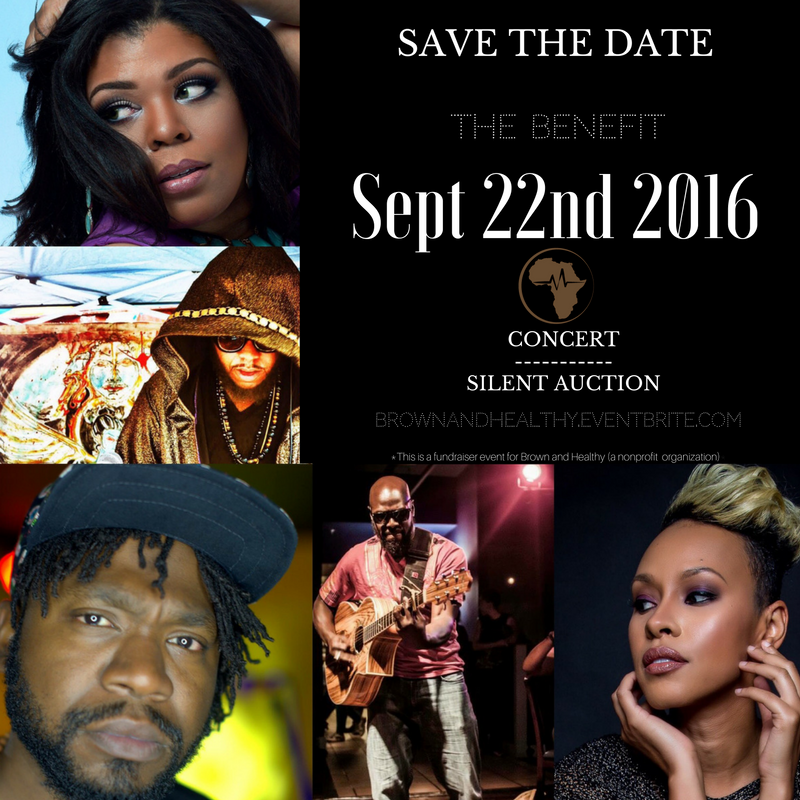
This weekend, get tickets for the first Brown and Healthy benefit concert, taking place at the Windup Space Sept. 23, and featuring performances by Eze Jackson, Joi Carter, Jahiti of Brown FISH, and Kariz Marcel/the Black Water Project.
Author Author Bret McCabe is a haphazard tweeter, epic-fail blogger, and a Baltimore-based arts and culture writer.
